Google Pixel 9 Pro XL vs Pixel 9 Pro Fold: is a foldable better than a big screen?
A higher price tag doesn’t necessarily mean better tech on all fronts
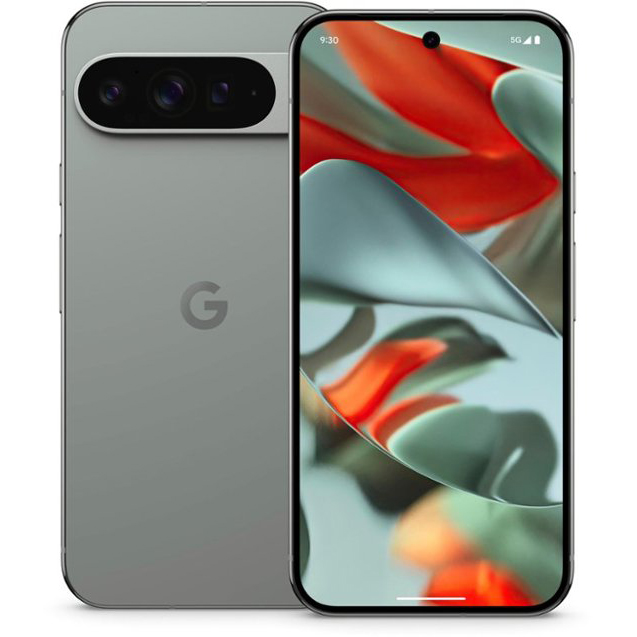
The flagship model of the Google Pixel range, the 9 Pro XL is one of the nicest feeling Android smartphones that you can currently buy.
For
- Great new design is durable and sleek
- Huge amount of RAM should future-proof this Pixel
- Bigger display and battery, faster charging
Against
- New AI features will require deep trust in Google
- Expensive compared to more powerful phones
- Fast charging but no charger included
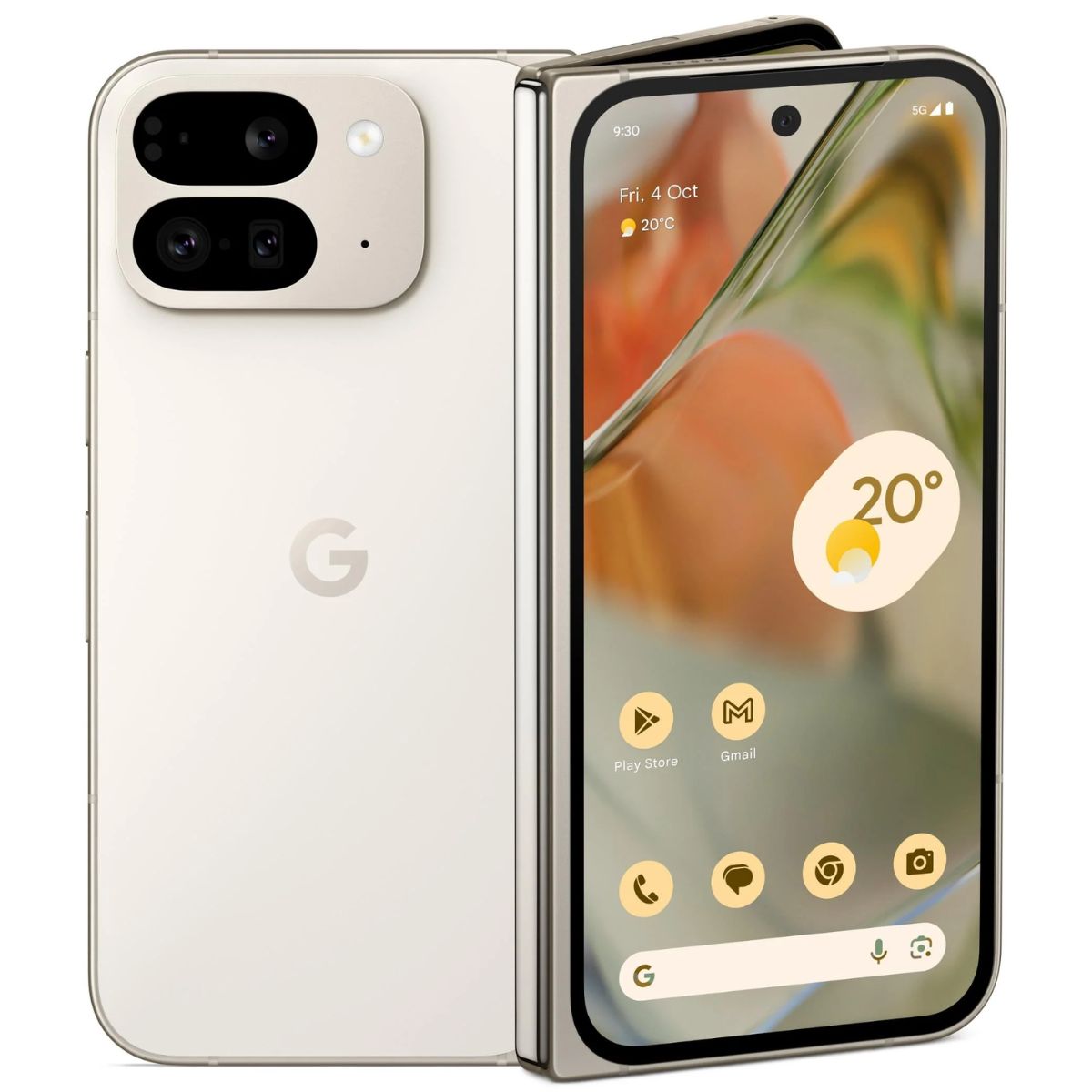
The most expensive phone in the Pixel 9 range, the 9 Pro Fold opens up like a book to function as a phone-tablet hybrid, combining Google's great software with a foldable form factor.
For
- Thinnest foldable you can buy (depending on where you live)
- Biggest screen ever crammed into a phone
- Amazing design fulfills the foldable promise
Against
- AI features make horrible images with no indication it’s AI
- Seriously, I made a Pooh bear doing drugs off of Eeyore
- Has nobody considered that this AI stuff is really bad?!
Google announced four new phones in August for its Pixel range, including the Pixel 9 and the Pixel 9 Pro. At the top end of the range, though, Google revealed a new flagship and a new foldable – the Pixel 9 Pro XL (taking the place of the old ‘Pro’ model as the larger device in the family) and the Pixel 9 Pro Fold, the company’s second foldable and the first to be coupled to a generation of Pixel devices.
With two ‘Pro’ models at the top of the pile, it begs the question – which is the better device? You might assume that one can fold and is therefore overall a better piece of kit, but it’s not so simple – and depending on what you’re looking for in a device, you might be surprised to learn about the underlying differences between these phones.
Some of us on the TechRadar team have used the both devices for a few weeks after launch and, between us, we’ve come to appreciate the different things about the two handsets. It’s more than just size and form factor – it also comes down to the design, cameras, price, performance and the battery.
So let’s put them head-to-head. Which is the better ‘Pro’ Pixel?
Google Pixel 9 Pro XL vs Pixel 9 Pro Fold: specs comparison
Before we get lost in the details, let’s just go over the specs.
| Google Pixel 9 Pro XL | Google Pixel 9 Pro Fold | |
|---|---|---|
| Weight: | 221 g | 257 g |
| Display: | 6.8 inch Super Actua display | 8 inch Super Actua Flex display (internal), 6.3 inch Actua display (external) |
| Resolution: | 1344 x 2992 | 2076 x 2152 (internal), 1080 x 2424 (external) |
| Refresh rate: | 1-120Hz | 1-120Hz (internal), 60-120Hz (external) |
| CPU: | Google Tensor G4 | Google Tensor G4 |
| RAM: | 16GB | 16GB |
| Storage: | 128GB / 256GB / 512GB / 1TB | 256GB / 512GB |
| OS: | Android 14 | Android 14 |
| Cameras: | 50MP wide; 48MP Ultrawide; 48MP 10X zoom | 48MP wide; 10.5MP Ultrawide; 10.8MP 5X zoom |
| Selfie Camera: | 42MP | 10.5 (internal), 10.5 (external) |
| Battery: | 5060 | 4650 |
| Charging: | 37W | 21W |
| Colors: | Obsidian, Porcelain, Rose Quartz, Hazel | Obsidian, Porcelain |
Google Pixel 9 Pro XL vs Pixel 9 Pro Fold: price and availability
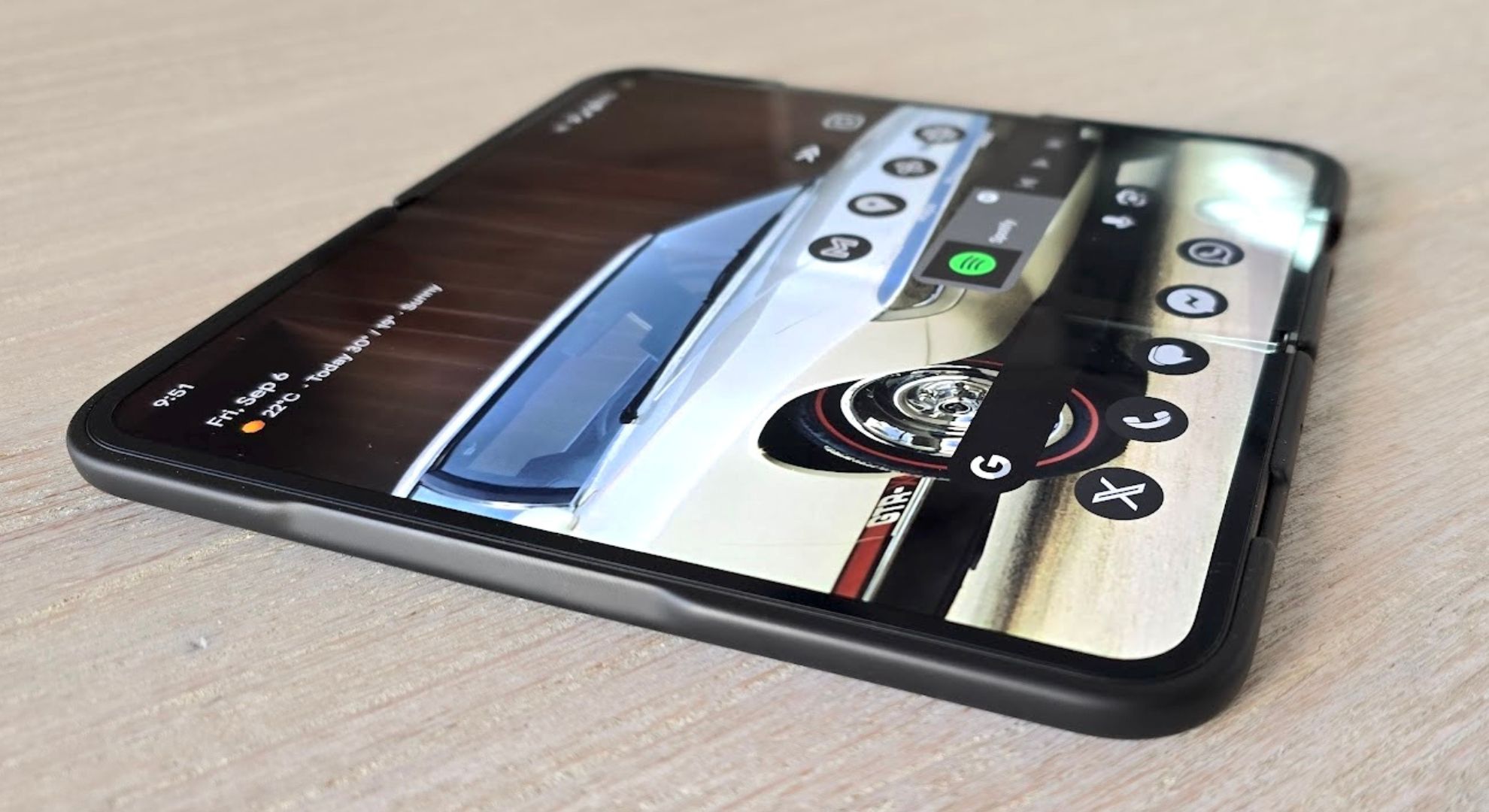
Despite different launch dates in some markets, the Google Pixel 9 Pro XL and the Pixel 9 Pro Fold are available to purchase now directly from Google and third-party retailers.
Prices for the Google Pixel 9 Pro XL start at $1,099 / £1,099 / AU$1,849 and prices for the Google Pixel 9 Pro Fold start at $1,799 / £1,799 / AU$2,699. There’s a sizeable price gap between these devices that can be attributed almost entirely to the foldable screen of the Pixel 9 Pro Fold.
That being said, the Pixel 9 Pro XL does pack some better tech in a lot of respects.
Google Pixel 9 Pro XL vs Pixel 9 Pro Fold: design
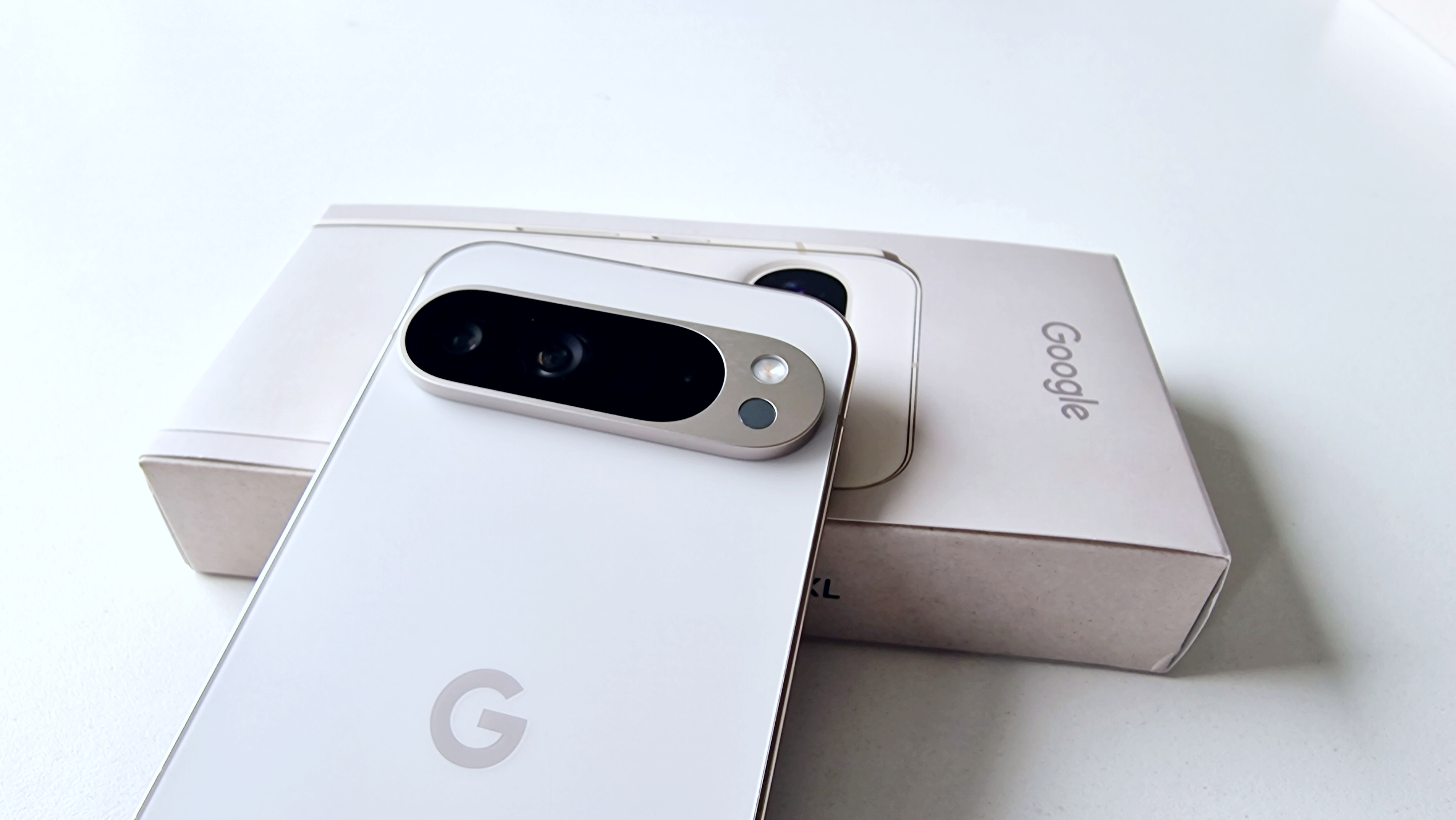
The most glaring design difference between the Google Pixel 9 Pro XL and the Pixel 9 Pro Fold is that the latter's screen… well, folds, but we’ll talk more about the display later – we’ll concentrate on the rest of the hardware in this section.
For starters, the rear of two phones are quite different – while both follow through with Google’s ‘camera bar’ design philosophy, the 9 Pro XL has a more oval camera bar, whereas the Fold has its cameras housed within a rectangular bump at the top left corner.
The Pixel 9 Pro XL’s dimensions are 162.8 x 76.6 x 8.5 mm (6.41 x 3.02 x 0.33 in) and the Pixel 9 Pro Fold’s dimensions when folded are 155.2 x 77.1 x 10.5 mm (6.11 x 3.05 x 0.41 in). Keep in mind that the Fold can be used like a normal phone when folded as there’s an exterior display but, when unfolded, its dimensions are almost square-like at 155.2 x 150.2 x 5.1 mm (6.11 x 5.91 x 0.20 in). That’s an admirably thin phone when opened up.
Both phones have aluminum frames as opposed to the titanium bodies that Samsung and Apple adopted for their high-end flagship models (excluding the Z Fold 6 and Z Flip 6 foldables from Samsung). The Pixel 9 Pro XL is IP68 rated against dust and water ingress, while the Pixel 9 Pro Fold is IPX8 rated (the X indicating that the phone had not been tested against non-water ingress, the 6 to show the highest rating against non-water ingress, and the 8 indicating the highest rating against water ingress).
The Google Pixel 9 Pro XL achieved a 4.5/5 score for its design in our review, while the Pixel 9 Pro Fold achieved a 5/5 score.
Google Pixel 9 Pro XL vs Pixel 9 Pro Fold: displays
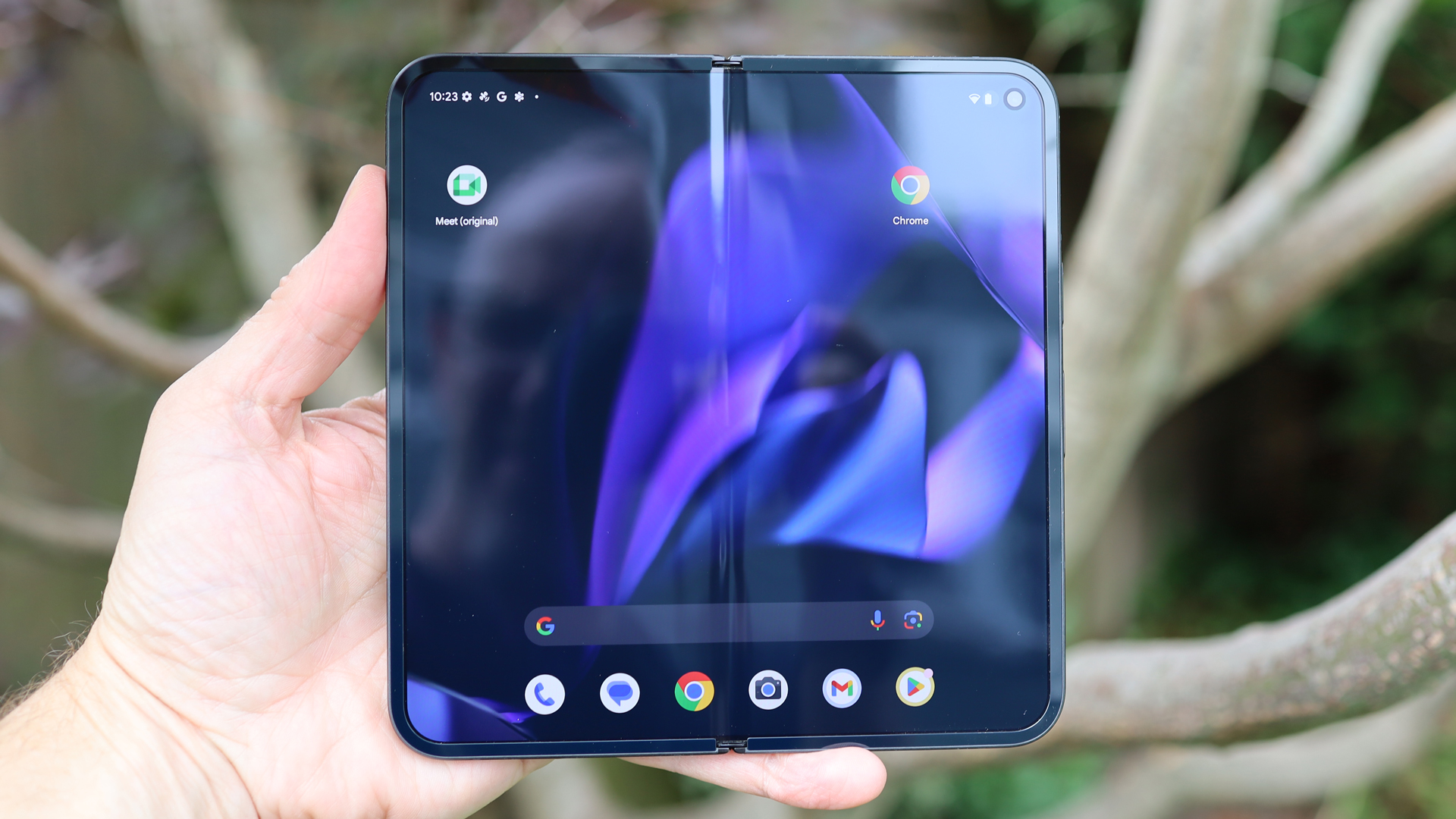
Display is the main point of difference between these phones. The Pro XL comes with a 6.8-inch OLED display packing a 1344 x 2992 pixel resolution. It has a 486ppi density and a refresh rate of 1-120Hz. It has a maximum brightness of 3,000 nits and Corning Gorilla Glass Victus 2.
The Pixel 9 Pro Fold, on the other hand, has two displays – the large folding screen on the inside and the slender, standard smartphone-like panel on the exterior. Starting with the foldable display, it’s an 8-inch OLED screen with a 2076 x 2152 pixel resolution. It has a 373ppi density and a refresh rate of 1-120Hz. It’s also protected by Corning Gorilla Glass Victus 2.
The exterior display of the Pixel 9 Pro Fold is a 6.3-inch OLED screen with a 1080 x 2424 pixel resolution. It has a 422ppi density and a refresh rate of 60-120Hz. It’s also protected by Corning Gorilla Glass Victus 2.
We gave the Google Pixel 9 Pro XL a 4.5/5 in our review of its display, while the Google Pixel 9 Pro Fold scored a full 5/5.
Google Pixel 9 Pro XL vs Pixel 9 Pro Fold: cameras
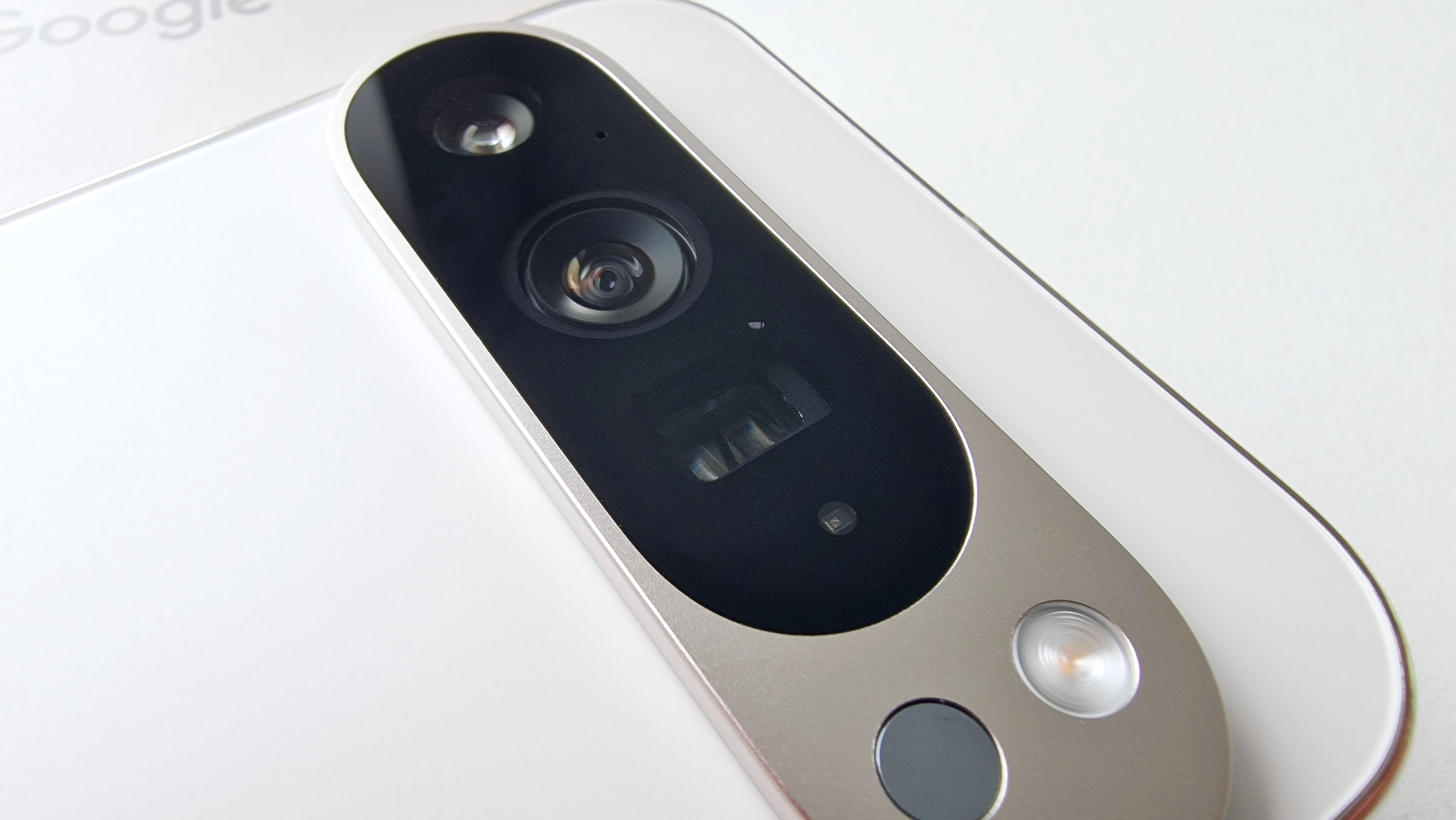
There is a big difference between the camera systems of the Pro XL and the Fold, but both are underpinned by Google’s brilliant camera software. Macro Focus, Night Sight, Long Exposure, Face Unblur and a wide range of editing features are just some of the highlights shared between both phones.
But ultimately the Pixel 9 Pro XL has the stronger camera array on offer. The Pixel 9 Pro XL comes fitted with a 50MP main camera and a 48MP ultrawide lens, along with a 48MP periscope telephoto lens. The selfie camera is a 42MP sensor.
Meanwhile, the Pixel 9 Pro Fold has a similar array of cameras, albeit a bit lower specced. They include a 48MP main camera, a 10.8MP telephoto lens, a 10.5MP ultrawide lens, and two selfie cameras depending on how you’re using the device – both 10.8MP, located on the exterior display and in the top right corner of the unfolded display.
In testing, photo quality was similar between the two phones, but the Pixel 9 Pro XL comes out on top. It offers Super Res Zoom at up to 30x against the Fold’s 20x. It also has greater optical zoom at up to 10x, versus the Fold’s 5x. The 9 Pro XL also offers high-res photos of up to 50MP.
The Pro XL is also better for capturing detailed video. It's capable of 8K/30p recording and offers dual exposure on the wide lens. Cinematic Blur is also a feature the 9 Pro XL can pull off.
Mind you, there are some camera features exclusive to the 9 Pro Fold because of its display, including the ability to show a preview of a shot on the other side, take selfies with the rear cameras, as well as capture hands-free shots using a table and ‘Made You Look’ – a feature intended for getting young children to look directly at the camera by showing something on the outside screen.
The Pixel 9 Pro XL achieved a 4.5/5 score in our review of its cameras, while the Pixel 9 Pro Fold achieved a 3/5 score.
Google Pixel 9 Pro XL vs Pixel 9 Pro Fold: performance and software
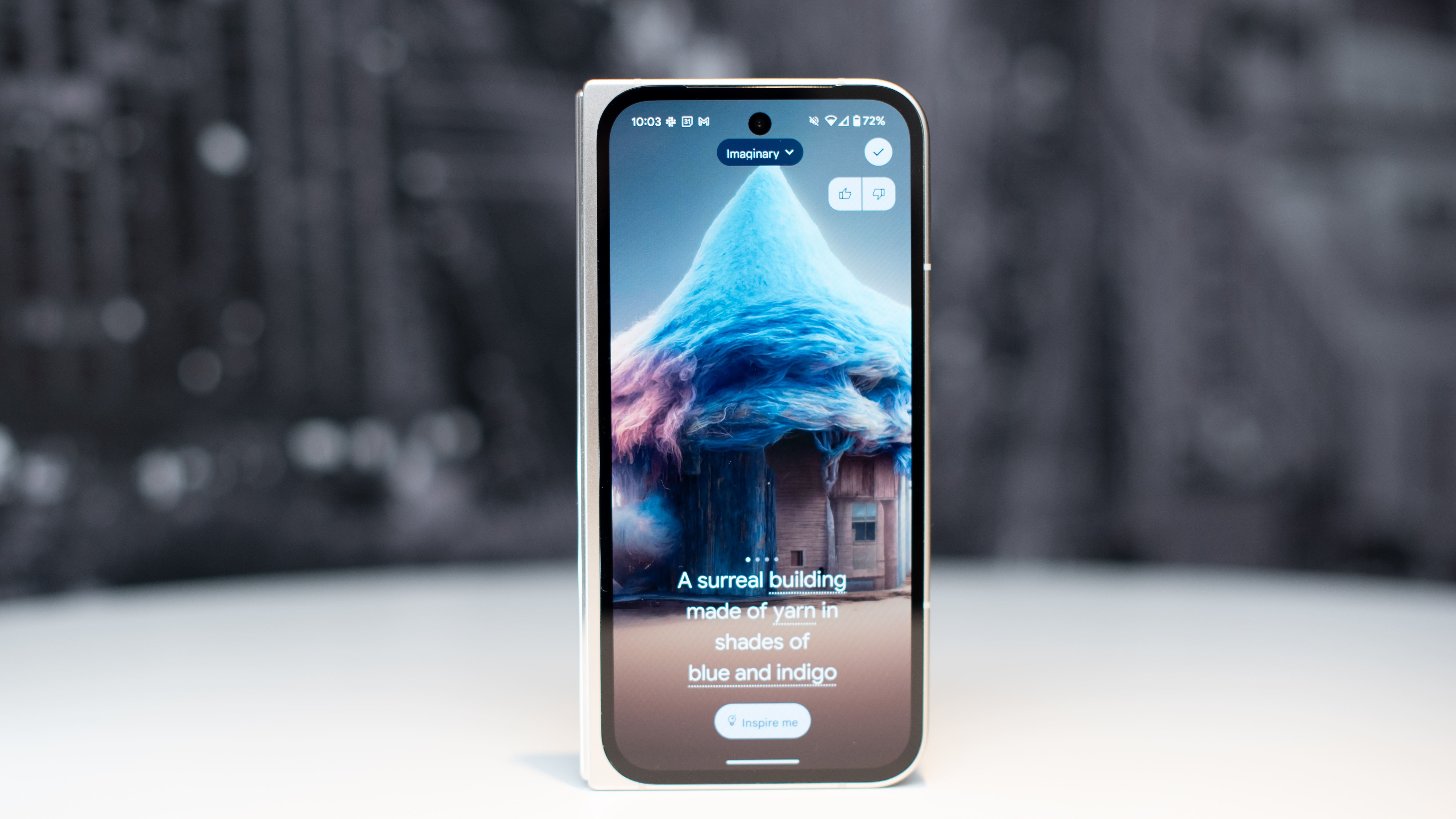
On paper, the Google Pixel 9 Pro XL and Google Pixel 9 Pro Fold are very similar devices. Both are powered by the Tensor G4 chip, a proprietary SoC exclusive to Google phones built using Samsung’s wafering process, with 16GB RAM backing the chip up. The Tensor chip is slightly underpowered compared to Snapdragons in competing phones at similar price points, as we found in our Google Pixel 9 Pro XL review and our Google Pixel 9 Pro Fold review.
But in testing, there are some performance differences between both phones. Over on Geekbench, which TechRadar uses for benchmarking phones, the Pixel 9 Pro XL pulled off a greater multi-core score of 4,835 against the Pixel 9 Pro Fold’s 3,904. The Pixel 9 Pro XL pulled ahead on single-core performance too, at 2,005 versus 1,955 on the Pro Fold.
In our reviews, we gave the Pixel 9 Pro XL a 3.5/5 for performance, while we gave the Pixel 9 Pro Fold a 3/5.
Meanwhile on the software side, both phones use Google’s own version of Android. This is an exceptionally lightweight version of the OS that only has Google’s own suite of apps installed and it feels much less bloated as a result. The Pixel 9 Pro Fold’s operating system works very similarly, though there are some software differences to accommodate for the larger screen, such as a larger app tray at the bottom of the screen.
Both phones got a 5/5 software score in our reviews.
Google Pixel 9 Pro XL vs Pixel 9 Pro Fold: battery life
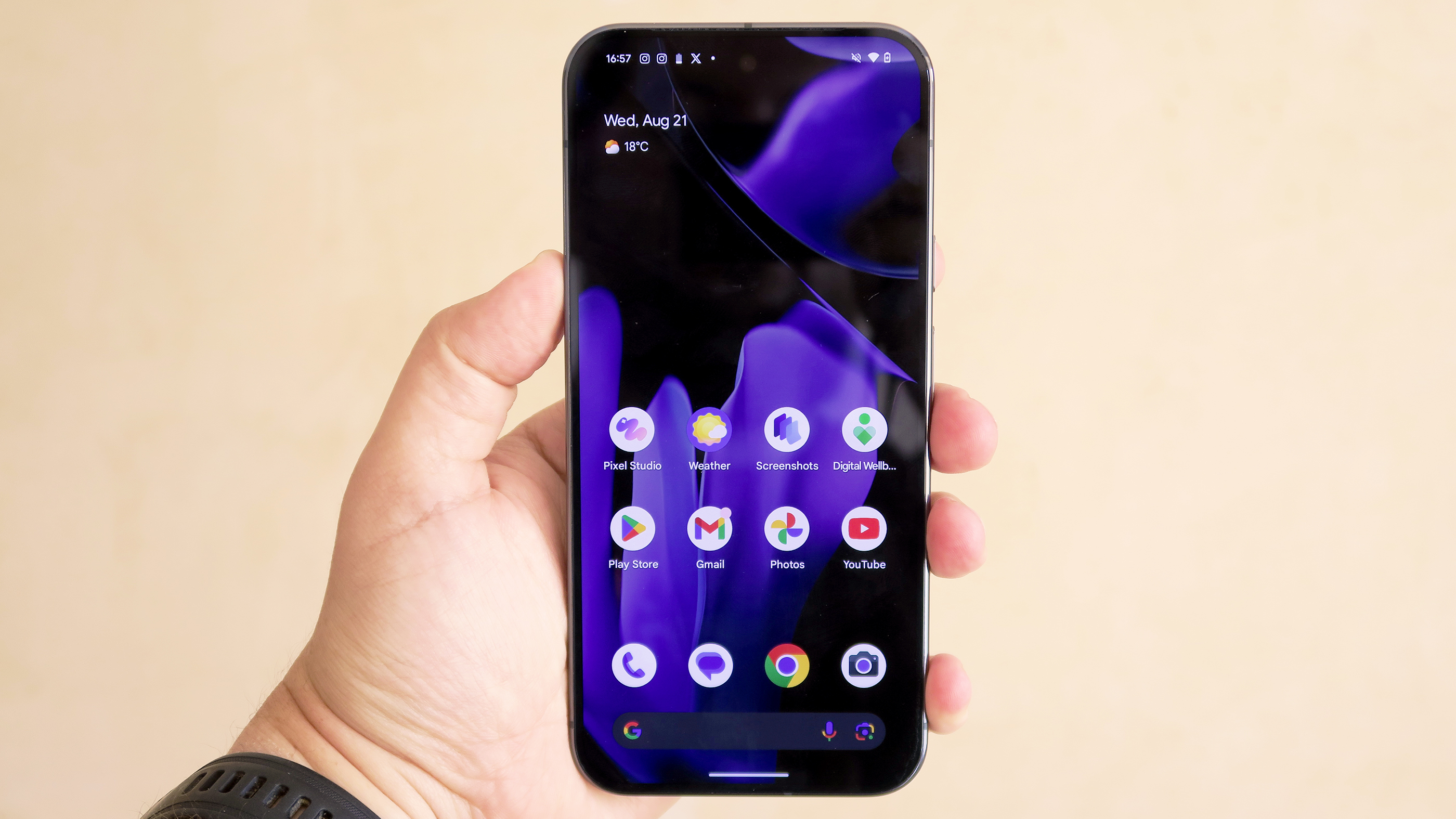
Battery life is another area where we saw big differences between the Pixel 9 Pro XL and the Pixel 9 Pro Fold.
The Pro XL boasts an impressive 13.5 hours of screen-on time per charge, powered by a 5,060mAh battery with a maximum wired charging capacity of 37W. That impressive wired charging capacity can get the Pro XL up from 0% to 70% in just 30 minutes.
Meanwhile the Pixel 9 Pro Fold doesn’t have a battery life on par with other Pixel 9 phones, with capacity that’s even lower than the base Pixel model (at 4,650mAh). Our testing found that the Pixel 9 Pro Fold could handle 11.5 hours of screen use before running out of charge. The Pixel 9 Pro Fold’s charging capacity also caps out at only 21W – with a rated recharging time of 0% to 50% in 30 minutes.
The Pixel 9 Pro XL scored 4/5 on our battery test, while the Pixel 9 Pro Fold scored 3/5.
Google Pixel 9 Pro XL vs Pixel 9 Pro Fold: verdict
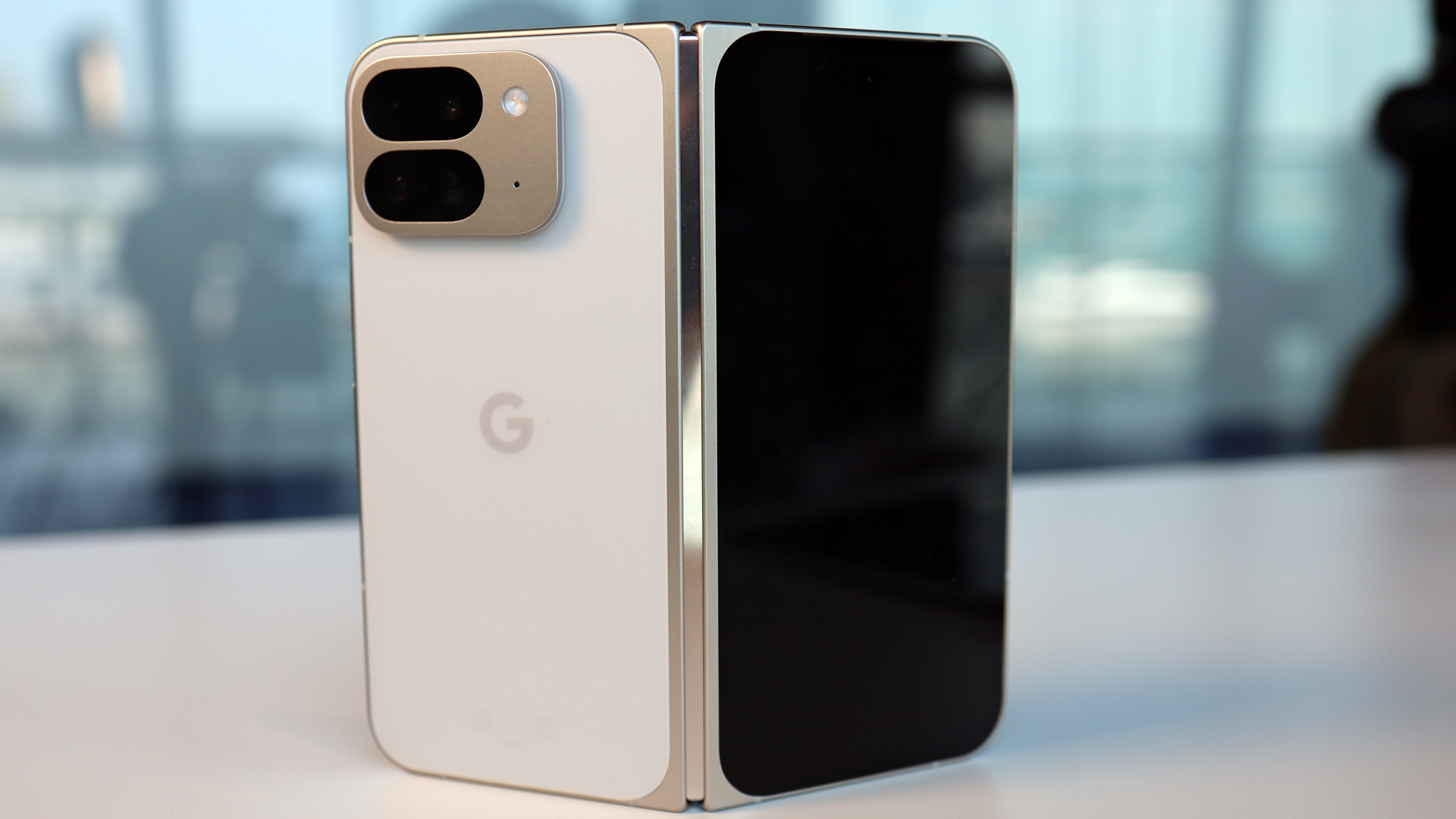
The Google Pixel 9 Pro XL and the Pixel 9 Pro Fold are quite similar phones on the performance and software side of things, but if you want the best display and a phone that can switch between being a pocket-sized handset and a foldable tablet, then you’ll probably want to pick up the Pixel 9 Pro Fold – that is, if you can handle the cost, because it is quite expensive.
Conversely, while the Pixel 9 Pro XL is also not cheap, it did perform better for us in our battery testing. It also has a better array of cameras and a better recharging speed, while also aesthetically looking a lot nicer on the rear. Not being a foldable, it also scored a greater resistance rating, and because there’s less complexity to the design, you don’t have to worry as much about breaking it (though still obviously consider a phone case).
While people who have been curious about foldables might find themselves gravitating to the Pixel 9 Pro Fold since using both phones, but in the interest of saving money, we'd be more inclined to recommend the Pixel 9 Pro XL. In fact, if cost was the primary consideration, we'd actually recommend the smaller Pixel 9 Pro for its cheaper cost and near identical specs to the XL – you can see how it compares in our dedicated Google Pixel 9 Pro vs Pixel 9 Pro XL guide.
Get daily insight, inspiration and deals in your inbox
Sign up for breaking news, reviews, opinion, top tech deals, and more.

Zac has been in the tech writing game for six years, having previously written for Gizmodo Australia, Canstar Blue, and The Daily Mail Australia (with articles on Nine, Junkee, Kotaku Australia and Lifehacker Australia). He’s a huge nerd with a deep passion for technology. While his main focus at TechRadar Australia is phones, monitors and peripherals, he also has a deep interest in the growing Australian EV landscape. Outside of Techradar, Zac’s a Headspace (a youth mental health organization) volunteer and an avid gamer.